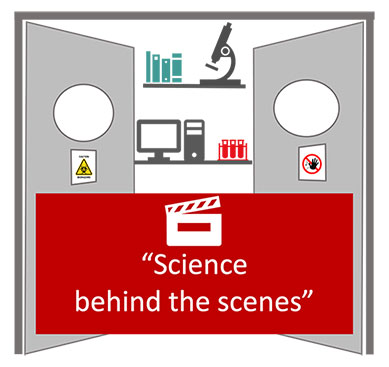
The Canadian Blood Services Lay Science Writing Competition is an annual event that engages and challenges our trainees to tell us their research stories. For the most recent competition, it was a pleasure to once again to partner with Science Borealis. Science Borealis are a national collective of Canadian science bloggers whose aim is to grow the Canadian science communication community while raising awareness of – and support for – Canadian science. With goals that complement those of our competition so perfectly, we were truly delighted to partner with them!
“Science behind the scenes” was the theme of the 2021-2022 competition and the winner was Alexandra Witt, a graduate student in the laboratory of Canadian Blood Services senior scientist, Dr. Ed Pryzdial. Following the competition, Witt was interviewed by Science Borealis’ Science and Society editor, Mary Anne Schoenhardt, who also acted as a judge for the 2021-2022 competition. Check out Schoenhardt’s May 2022 post on the Science Borealis blog to learn more about Witt’s process in crafting her winning entry.
Big thanks to all at Science Borealis, and in particular Schoenhardt, for their support of this competition!
Science Borealis blog post: Science writing behind the scenes: An interview with the winner of the Canadian Blood Services Lay Writing Competition.
Another key partner in delivering the 2021-2022 Lay Science Writing Competition was the Centre for Blood Research (CBR). Canadian Blood Services and the Centre for Blood Research have a long-standing relationship and we partner regularly to deliver training and education events. The Centre for Blood Research helped to develop the competition, and since its inception they have promoted it to their large network of trainees and supported the competition process. The Centre for Blood Research’s support is instrumental and truly helps guarantee the competition’s on-going success. Thank you!
Read the winning entry on the Centre for Blood Research blog: Lay Science Writing Competition Winner: What does it take to make a life-saving drug?
Canadian Blood Services – Driving world-class innovation
Through discovery, development and applied research, Canadian Blood Services drives world-class innovation in blood transfusion, cellular therapy and transplantation—bringing clarity and insight to an increasingly complex healthcare future. Our dedicated research team and extended network of partners engage in exploratory and applied research to create new knowledge, inform and enhance best practices, contribute to the development of new services and technologies, and build capacity through training and collaboration. Find out more about our research impact.
The opinions reflected in this post are those of the author and do not necessarily reflect the opinions of Canadian Blood Services nor do they reflect the views of Health Canada or any other funding agency.
Related blog posts
Read the entry that was awarded first place in this year’s “Science behind the scenes” Lay Science Writing Competition! Congratulations to the winner, graduate student Alexandra Witt. She identified high school students as her target audience and wrote an engaging piece that sheds light on the questions scientists ask when developing a new drug.
Read undergraduate student Parth Patel’s entry to this year’s “Science behind the scenes” Lay Science Writing Competition. His heartfelt piece, which was targeted towards a public audience and ultimately earned him second place in the competition, pays homage to what he describes as research’s greatest tools – his lab mates and colleagues.
Read graduate student Jaya Rastogi’s entry to this year’s “Science behind the scenes” Lay Science Writing Competition. In an entry that identified high school students as the audience, Jaya describes their research to understand the perspectives of young adults on sex and gender questions asked during blood donor screening. The entry was awarded third place in this year’s competition.


